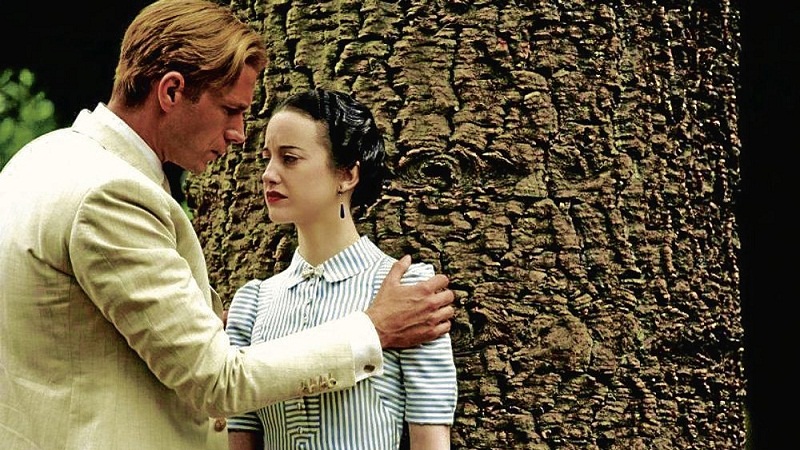In defense of flawed heroines
Madonna’s second directorial effort, “W.E.,” has less “filth” and a little more “wisdom” and style than 2008’s “Filth and Wisdom,” her pretentious and incoherent feature-length debut as a filmmaker.
Her latest movie is more watchable and lusciously photographed, but Madonna still bites off more than she can chew by attempting to demystify the union of King Edward VIII (James D’Arcy) and Wallis Simpson (Andrea Riseborough), the twice-divorced American matron for whom he abdicated the British throne in 1936. (He relinquished the crown to his brother, George VI, the stammering monarch portrayed to great acclaim by Oscar winner Colin Firth in “The King’s Speech.”)
35-year marriage
The Material Girl ups the narrative ante by using the Duke and Duchess of Windsor’s 35-year marriage to examine the bond that develops between another couple, Wally (Abbie Cornish) and Evgeni (Oscar Isaac), who live some six decades later.
Wally is a lonely and battered housewife, who strikes an unusual “friendship” with the security guard who’s helping oversee Sotheby’s auction of the Windsor estate. She frequents the place because she finds comfort in the royal couple’s tale—which she considers the “greatest love story of the 20th century.”
It’s interesting to see how the production jumps from one period to another as it establishes the different themes that enable its heroines’ disparate stories to intersect. At some point, this convenient tack allows Wallis and Wally to meet—and “interact” with each other! Eat your heart out, “Midnight in Paris!”
Madonna focuses on unapologetically flawed women (note Riseborough’s portrayal) who draw strength from their weaknesses—but, she lets her biases dilute the scorch and sizzle of her stories, making the narrative strands more confusing than clarificatory.
Moreover, there’s a glaring disconnect between the intensity of the film’s emotionally charged scenes and the degree of empathy they draw from the audience. Except for Isaac and the fierce Richard Coyle, who plays Wally’s abusive husband, William, you can’t fully empathize with the main characters, because their portrayals are too mannered and modish—even when the action gets intense and hectic.
Motivation
For instance, Edward sacrificed a lot to be with his One True Love, but D’Arcy fails to express the motivation that compelled the beleaguered king to fight for the American divorcee—against all odds!
This is where directorial foresight and insight would have worked wonders for the movie. You cannot just tell life-and-death tales as casually as Madonna does—because, for Edward and Wallis, the decision they made wasn’t easy. Staying together meant the world to them!
The controversial couple remained married until the Duke’s death in 1972. For the first time since 1936, Wallis was invited back to England for Edward’s funeral. She died 14 years later—and was buried beside her husband at Windsor Castle.
